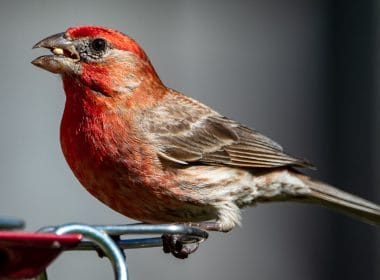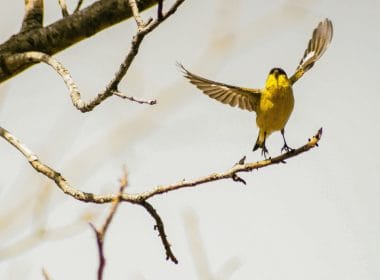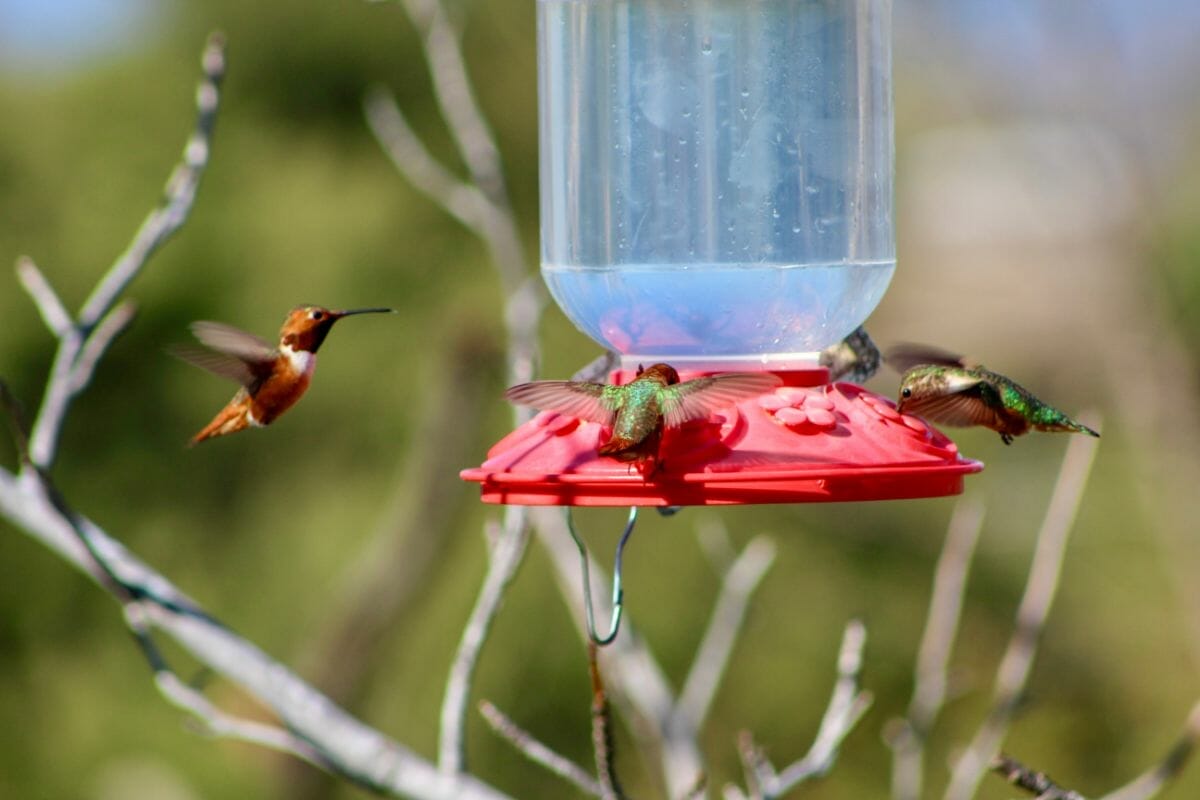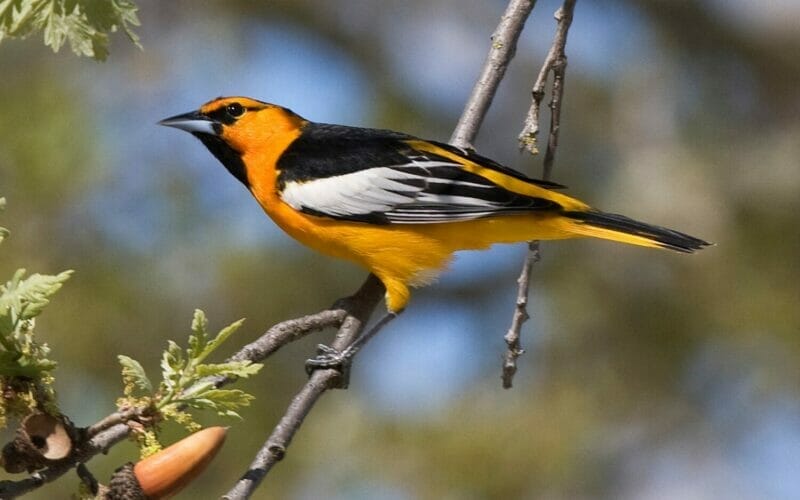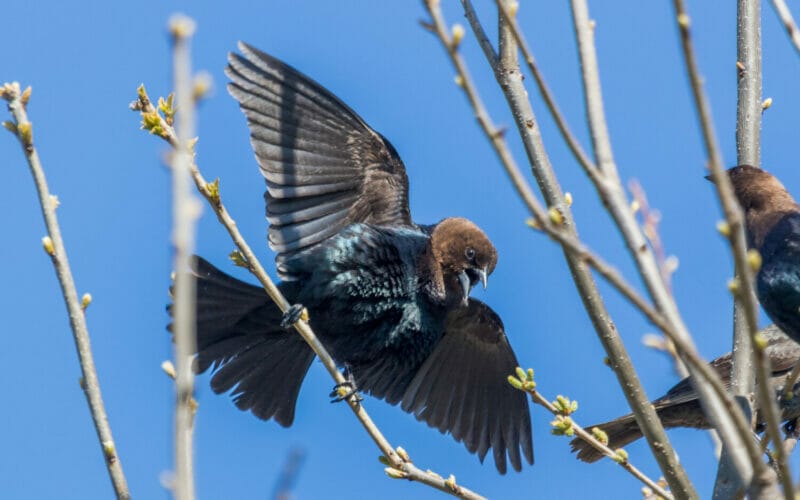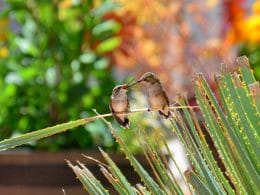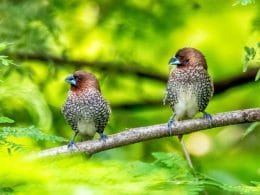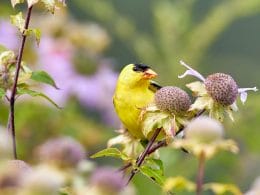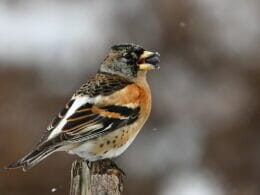If you love hummingbirds, then chances are, you have gone through great efforts to create a lovely space for them in your backyard. You painlessly worked to ensure there is an abundance of birdbaths, flower beds, and of course, hummingbird feeders complete with delicious nectar.
Unfortunately, hummingbirds are not the only creatures attracted to this sweet nectar. Ants love all things sugar. So, if you place nectar out for hummingbirds, then it is highly likely you will find ants upon ants feasting upon it.
Now, hummingbirds like to eat ants, too. However, they do not like to mix their sweet and savory foods so they will stop eating the nectar you put out for them and eat the ants instead. But, they could also stop coming to your backyard altogether, and you are at risk of having an ant problem.
But, there is a solution! In this article, I will detail several effective ways of keeping ants out of hummingbird feeders. So, if you’re interested, read on for more!
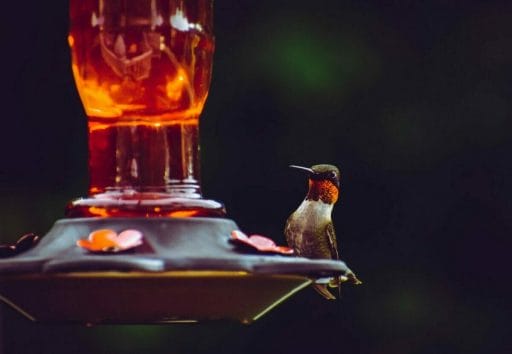
Use A Fishing Line To Hang The Feeders
The first thing you can do to stop ants from getting into your hummingbird feeders is to hang them from a tree using a fishing line.
Fishing lines are difficult for ants to traverse because they are so thin and slippery. So, ants may try, but they will likely fail to cross the line and get into the hummingbird feeder.
However, be sure to invest in fishing lines that are going to hold the weight of the feeders. Generally, this means that the fishing line needs to be able to support 2 lbs of weight.
Install An Ant Moat Onto The Hummingbird Feeder
Think of your hummingbird feeder as a castle. To defend a castle, you need a good moat! Ant moats are a very common method of protecting hummingbird feeders.
The ants will get deterred from entering the feeder because of the huge body of water that surrounds it.
Some hummingbird feeders come with an ant moat built in, but you can easily buy one that can attach to any hummingbird feeder.
However, it is important to note that during the summer, the water in the moat will evaporate quickly, so you will need to keep a close eye on the moat to ensure that no ants have crossed it.
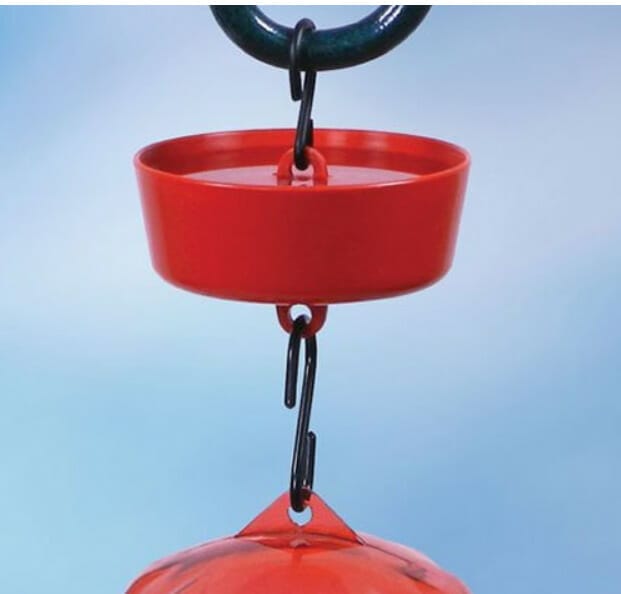
Buy An Ant Guard For The Hummingbird Feeder
Some very clever ants can build bridges to be able to cross moats. So, if your moat hasn’t worked, then you need to buy an ant guard.
Ant guards usually contain an insecticide that does not kill ants but works very well to deter them and keep them away from the hummingbird feeders.
Typically, the insecticide used is Permethrin, which is safe to use around pets, people, and birds. I recommend resorting to this solution if nothing else you have tried has worked.
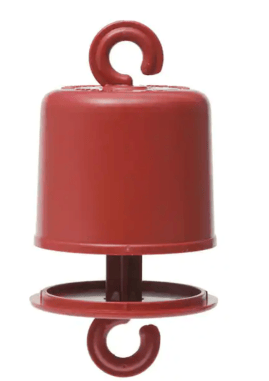
Repair Any Cracks Or Leaks In The Hummingbird Feeder
If your hummingbird feeder has any cracks or leaks, then it is best to repair it right away.
This is because ants will be able to smell the sweetness of the nectar through the leaks and cracks due to the sugar water escaping through them. Leaks and cracks are the main reason that ants are attracted to hummingbird feeders.
But what exactly causes cracks and leaks in hummingbird feeders? Well, they are actually caused by the sun and the wind!
Heat will cause your hummingbird feeder to expand and this can lead to cracks. So, during the summer and warm weather, it is best to check the feeder often.
As for the wind, if it is strong it will knock the hummingbird feeder over. If this happens, it is good to check for leaks before you hang it back up. If you find any, you can patch them up and tighten any parts of the feeder that may be loose.
However, if it is damaged beyond repair, it is time to invest in a new one or you may find you’re laying out a feast for ants the next time you want to feed the birds.

Clean The Hummingbird Feeder Regularly
One of the best ways to stop ants from infesting the hummingbird feeder is to clean it on a regular basis. This will also help to deter other insects, too.
To clean your hummingbird feeder, it is best to wipe it down at the end of every day.
Make sure you do this for every part of the feeder and check for cracks and leaks after you are sure the feeder is totally clean. Then, you can refill it with nectar.
It is also a good idea to clean your moat at the same time you clean the feeder, and refill it with fresh water.
Place Leaves Around The Hummingbird Feeder
And not just any leaves! It is a good idea to place bay leaves or mint leaves around the hummingbird feeder. Ants are like many small children, they detest their greens!
So, by placing bay and mint leaves around the feeder, you will successfully repel the ants and make sure there is plenty of food for the hummingbirds!
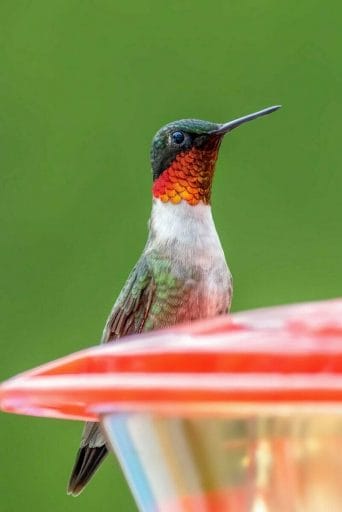
Hang Your Hummingbird Feeder Above A Body Of Water
If you have a body of water in your backyard, such as a pond or a fountain, then this is a great way to deter ants from your hummingbird feeders because ants would not be able to cross a large body of water.
You can use a mounting tool, such as a clamp pole, to successfully hang your hummingbird feeder. And there you go! You will have a lovely palace for hummingbirds to eat that ants cannot access.
Final Thoughts
Ants are pesky creatures that are as attracted to nectar as hummingbirds are. However, there are many ways you can deter them and allow your hummingbirds to enjoy all the nectar that they desire!
I hope this article taught you all you need to know about how to deter ants from hummingbird feeders!
Best of luck!
FAQ
No, Vaseline is not an effective way to keep ants off hummingbird feeders. Ants can easily crawl over the Vaseline and reach the nectar inside. Vaseline and other petroleum jellies could also be harmful to the birds on the feeder, especially if it gets onto their wings.
Yes, you can spray vinegar on your hummingbird feeder to deter ants. Ants are repelled by the strong smell and taste of vinegar, and they will avoid climbing on the feeder or getting near it. To use vinegar as an ant deterrent, mix equal parts of water and vinegar in a spray bottle and spray it on the feeding station and the surrounding area. Reapply the mixture regularly, especially after rain or when you refill the feeder. Keep in mind that vinegar may also affect the taste of the nectar, so it’s best to clean the feeder thoroughly with soap and water before refilling it with fresh nectar.
Sugar water for hummingbirds should be changed every 1-2 days, especially during hot weather, to prevent spoilage and the growth of harmful bacteria. The nectar can ferment quickly and spoil, becoming toxic to the hummingbirds. A feeder that has not been cleaned regularly can also attract bees and wasps, which can be a threat to the hummingbirds. To keep your hummingbirds safe and healthy, make sure to change the nectar frequently and clean the feeder thoroughly between fillings. If the weather is hot, you may need to change the nectar more often.
